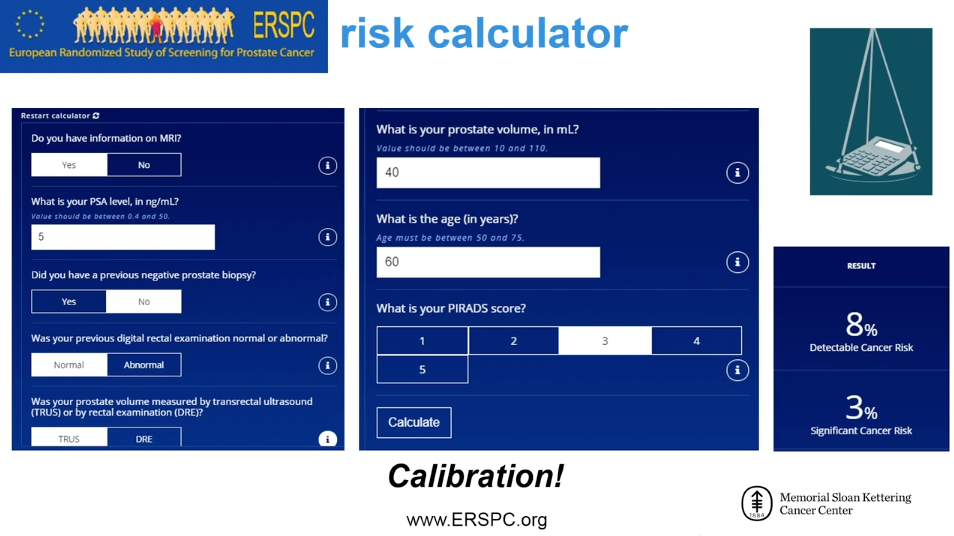Sigrid V. Carlsson, MD, PhD, MPH, presented “State of the Art in “Smart” Prostate Cancer Screening: Defining the Need for Precision Diagnostics” during The 4th Global Summit on Precision Diagnosis and Treatment of Prostate Cancer on October 3, 2019 in Boston, Massachusetts.
How to cite: Carlsson, Sigrid V. “State of the Art in “Smart” Prostate Cancer Screening: Defining the Need for Precision Diagnostics” October 3, 2019. Accessed Apr 2025. https://grandroundsinurology.com/state-of-the-art-in-smart-prostate-cancer-screening-defining-the-need-for-precision-diagnostics/
State of the Art in “Smart” Prostate Cancer Screening: Defining the Need for Precision Diagnostics – Summary:
Sigrid V. Carlsson, MD, PhD, MPH, discusses the evolution of attitudes toward PSA screening for prostate cancer over time, and the importance of implementing the PSA test in a way that will truly benefit patients. She details how risk-stratifying algorithms and calculators, biomarkers, and MRI can play a role in refining prostate cancer screening.
Abstract:
Prior to the United States Preventive Services Task Force (USPSTF) releasing their grade D recommendation against PSA-based prostate cancer screening, widespread, routine PSA testing led to overdiagnosis and overtreatment. However, screening also resulted in lower prostate cancer mortality. Since the decline of screening, the United States has seen a definitive increase in distant metastases in men over age 75. In order to minimize overdiagnosis while retaining the ability to detect significant disease early in at-risk patients, urologists need a smarter approach to screening.
The use of MRI to decide when to biopsy and to identify biopsy targets has improved the prostate cancer detection pathway. While guidelines have integrated MRI into clinical diagnosis, and MRI does improve the detection of significant cancer, decrease the number of unnecessary biopsies, and reduce overdiagnosis, it can have a significant miss rate. For instance, the PROMIS trial showed that MRI had a negative predictive value of only 76% for clinically significant prostate cancer. MRI is also associated with a substantial proportion of false positives and variability of interpretation among radiologists. The utility of mpMRI alone is therefore limited.
Risk-stratifying algorithms, as well as risk calculators that take the sum of information on a patient, including age and PSA, and produce an objective assessment of the patient’s risk, can further refine screening approaches. New biomarker-based tests like STHLM3 and 4KScore are also valuable diagnostic tools in the urologic armamentarium.
About The 4th Global Summit on Precision Diagnosis and Treatment of Prostate Cancer:
The Global Summit on Precision Diagnosis and Treatment of Prostate Cancer is a multi-day, multi-disciplinary forum designated to informing health care stakeholders about topics including in-vitro fluid- and tissue-based molecular diagnostics, novel observation strategies such as active surveillance, and novel therapeutic interventions. Along with this forum’s efforts to form a consensus on the future of prostate diagnostics and precision care, it aims to create an educational and research strategy for its realization. Dr. Carlsson presented this lecture during the 4th iteration of this Summit in 2019.
ABOUT THE AUTHOR
Sigrid V. Carlsson, MD, PhD, MPH, is Director of Clinical Research at Memorial Sloan Kettering Cancer Center’s (MSKCC) Josie Robertson Surgery Center and Assistant Attending Epidemiologist, with dual appointments in MSKCC’s Departments of Surgery (Urology Service) and Epidemiology and Biostatistics. Her line of research focuses on screening and early detection of prostate cancer, including multiplex testing and risk-stratified strategies that incorporate clinical information, biomarkers and magnetic resonance imaging, as recently funded by an NIH/NCI U01 award (PI: Carlsson).
Dr. Carlsson also serves as Associate Professor of Experimental Urology affiliated with the Institute of Clinical Sciences, Sahlgrenska Academy, Gothenburg University, in Sweden, where she is an investigator of two large randomized controlled trials of prostate cancer screening (GOTEBORG-1&2), as recently published in the New England Journal of Medicine (Hugosson J, et al. N Engl J Med 2022). In addition, Dr. Carlsson is Adjunct Senior Lecturer in the Department of Translational Medicine in the Division of Urological Cancers in the Medical Faculty at Lund University, Lund, Sweden.
Dr. Carlsson recently completed a K22 career development award from the NIH/NCI to improve shared decision-making for breast and prostate cancer screening. She serves on the National Comprehensive Cancer Network (NCCN) and is a panel member for the American Urological Association (AUA) guidelines for early detection of prostate cancer. Before pursuing postdoctoral studies in urologic oncology at MSKCC, Dr. Carlsson was a physician in Sweden. She earned her MD and PhD from Gothenburg University in Sweden and earned an MPH from Harvard TH Chan School of Public Health in Boston, Massachusetts.

